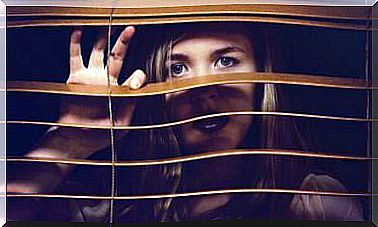Get Bored, Your Brain Will Thank You

The idea that boredom has to be fought only with external stimuli is a serious mistake. Dealing with boredom alone and in silence is also possible, in fact it is an art to learn to master and that also increases our creative capacity.
According to Guillermo Funes, honorary professor of psychology at the Carlos III University, “An adequate level of boredom encourages creativity, breaks the routine and can create something different.” Despite the association we have created between boredom and fear, as well as between silence and anxiety, there is a positive effect: when we get bored, things occur to us. Boredom somehow sharpens imagination and ingenuity. Hence the title of this article “Bored, your brain will appreciate it.”
A study from the Central Lancashire University (Uclan) argues that more passive boring activities, such as attending meetings, can lead to greater creativity, while other activities such as writing, reduce the effects of it. Although boredom at work is classified as a state that must be eliminated, if we take these results into account, perhaps at certain times and in some areas, it would not be bad to spend some time on it.
If being bored is beneficial, why do we usually feel bad when we are bored?
Why do we immediately look for something to do when we start to get bored? What hides intolerance to this state? Beyond the negative label attributed by society, boredom can be interpreted as an indication of an empty life or as a state that reminds us that we are not doing anything useful. Or at least, that’s what we think.

In a hyper-connected and hyper-stimulated society, boredom begins to be a rare good and a common evil at the same time. We get bored and immediately turn to external resources such as television and technology to get out of that state. We do not know how to enjoy free time, the present moment and the connection with our interior. Our priority is to keep busy.
By this we do not mean that we have to immerse ourselves in a state of inactivity dominated by daily boredom, but that being bored in some way helps us to listen to ourselves and discover what we try so hard to hide with activity.
On the other hand, the excess of stimuli in today’s society can make us feel a fictitious boredom. Perhaps currently there is a higher rate of boredom because we do not know how to enjoy simple things. Most of the time we get bored, not because we have nothing to do, but because the stimuli we have do not satisfy us.
To combat the discomfort that boredom causes, we have to be aware of why we get bored in order to take advantage of it. Get bored, and see what happens.
Getting bored at the right time is a sign of intelligence
Is it good to be bored? Like almost everything, excess is bad. As we have seen, a dose of boredom stimulates creativity, since when we are in this state we look for ways to entertain ourselves. Now, with social networks and electronic devices close at hand, we are going to develop this creativity. Instead, if we don’t, imagination and ingenuity will enter the scene and we will create a world of possibilities.

On the other hand, excessive boredom could lead us to consume more alcohol and tobacco or to have more extreme ideas. The fact that boredom is an everyday experience suggests that it should serve a purpose, says Heather Lench, a professor at Texas A&M University. After all, feelings like fear can help us avoid danger, while sadness keeps us from making mistakes in the future. What does boredom achieve?
Heather Lench suspects that boredom is behind one of our most important characteristics: curiosity. Boredom prevents us from always falling into the same thing, it prompts us to set new goals and explore new territories or ideas.
Get bored, your brain will thank you.









